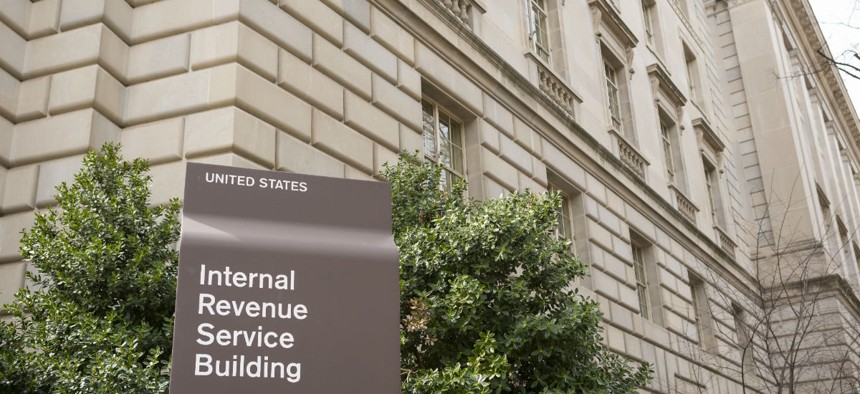
Rob Crandall/Shutterstock
IRS Shortchanges Taxpayers With Its Focus on Delinquents, Advocate Says
Nina Olson criticizes the current priority on enforcement over service.
In what she called “arguably the most important piece I have written about the IRS in my 15 years serving as the National Taxpayer Advocate,” Nina Olson used her annual report to Congress, released on Tuesday, to critique the Internal Revenue Service’s current vision for the future.
“To create an environment that encourages taxpayer trust and confidence, the IRS must change its culture from one that is enforcement-oriented to one that is service-oriented,” she wrote.
Based on a nationwide survey and interviews with tax practitioners and return preparers, Olson warned that taxpayer resentment of an aggressive IRS actually erodes tax compliance. “If a tax agency views its primary mission as ‘enforcing’ the tax laws, it will design its procedures and apply its resources to ‘hunt down’ those taxpayers it views as noncompliant,” she said. “It justifies this approach by rationalizing that law-abiding taxpayers want to know that all taxpayers are paying their fair share. The problem with this approach is that it undermines the willingness of taxpayers to comply by focusing most of its resources on those who are not willing to comply. Taxpayers who are willing to comply are left without adequate support.”
Currently, the IRS’ annual appropriation of $11 .2 billion allocates 43 percent to enforcement, with only 21 percent for taxpayer service, the report noted, and only 6 percent for functions such as outreach and education. In the 2017 filing season, the “walk-in” centers will scarcely exist because appointments will be required, Olson lamented.
In last year’s report, Olson had criticized the agency for rushing too many taxpayers to go online for help, as well as for a lack of transparency. This year, she wrote that the agency had partially addressed her concerns by posting future state-related documents on its websites and assuring Congress that it was not eliminating phone and walk-in help for taxpayers who have questions.
But she still recommended that the agency submit a “comprehensive Future State plan that describes in sufficient detail its vision for a 21st-century IRS” as it relates to different types of taxpayers, and that the agency map out the obstacles to actualizing that vision.
To help ease taxpayer resentment, she recommended that the IRS fund initiatives that “enhance and maintain voluntary compliance, align with the specific needs and preferences of taxpayers as they attempt to comply with the tax laws, and eliminate unnecessary downstream re-work.”
As she has in previous years, Olson implored Congress to increase the tax agency’s budget. “Significant cuts to the IRS budget since fiscal 2010 have limited the IRS’s ability to meet taxpayers’ needs and improve its technology systems,” the report said. It recommends that “Congress provide the IRS with additional funding and conduct more rigorous oversight so it can be assured the funding is well spent.”







